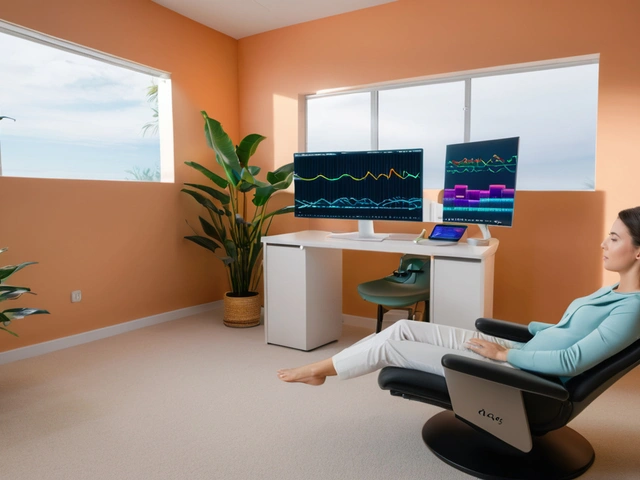Daily routine: small habits that make big health gains
What you do each day shapes how you feel. Pick a few practical habits now and you'll have more energy, less stress, and faster recovery—not someday, but this week. Below are easy, real steps you can start using right away.
Morning rituals that work
Wake with a short plan. First 30–60 minutes: hydrate (a glass of water), move for 5–10 minutes (gentle stretch or walk), and eat a balanced breakfast. Aim for protein + fiber: eggs with whole-grain toast, Greek yogurt with berries, or a smoothie with spinach, banana, protein powder and a spoon of nut butter. If you like juice, add a veggie-based blend rather than only fruit—less sugar, steady energy. Turmeric in coffee or smoothies can be a simple anti-inflammatory boost if you tolerate it.
Finish your morning with 5 minutes of meditation or gratitude practice. A short breathing exercise or a gratitude list calms your mind and sharpens focus for the day. If you prefer tech, a mindfulness app can keep you consistent—pick one and use it for two weeks to form the habit.
Movement, recovery, and mid-day care
Short bursts beat long, random workouts. Try two 20-minute sessions (strength + cardio) or a 30-minute walk. After intense sessions, use recovery tactics: foam rolling, gentle stretching, and sleep-quality choices. If you train hard frequently, schedule a sports massage every 1–4 weeks depending on load. Sports massage helps blood flow, eases tight spots, and lowers injury risk—treat it like preventive care, not a reward.
Snacks matter. Choose foods that fill you up and keep mood steady: a small handful of nuts, apple slices with nut butter, hummus and carrots, or cottage cheese with fruit. If stress triggers cravings, swap convenience snacks for prepped options—portion nuts in small bags, cut veg the night before, or keep single-serve yogurt on hand.
Work routines benefit from short resets. Use the 50/10 rule: 50 minutes focused, 10 minutes to stand, breathe, or do a quick walk. When stress spikes, try a 4-4-8 breathing pattern (inhale 4, hold 4, exhale 8) for two minutes—fast relief with no equipment.
Evening reset: shut down screens 60 minutes before bed, dim lights, and do a calm activity—reading, light stretching, or creative work like drawing or journaling. Creative arts activities help offload emotions without talking and often improve sleep. If anxiety keeps you up, try progressive muscle relaxation or a guided meditation designed for sleep.
Start small: pick one morning habit, one snack swap, and one recovery habit. Track them for two weeks and adjust. Set clear, tiny goals—like "5 minutes of meditation after breakfast"—and build from there. Want more ideas? Explore articles on healthy breakfasts, daily meditation, mindfulness apps, sports massage tips, and snack strategies to match these simple steps to your life.
Small, consistent moves beat perfect but short-lived plans. Make one change today and watch how your days shift.
How to Incorporate Relaxation Techniques into Your Daily Routine
Oh, honey, we're diving right into the magical world of relaxation techniques and how to sneak them into your daily hustle and bustle! First up, breath, darling, that's right - deep, rejuvenating breaths throughout the day can work wonders. Find your zen in the chaos with mini meditation breaks, because who said you can't find peace amidst ringing phones and piling paperwork? Get your body in the groove with some gentle stretches, because let’s face it, we're not as young as we once were! Lastly, don't forget to end your day with a warm, calming cup of chamomile tea or perhaps a glass of wine, because you've earned it, darling!
View More





